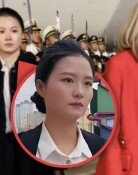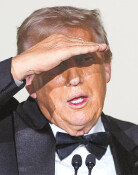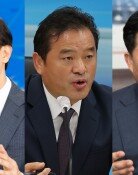Six finalists compete for POSCO’s next chairman post
Six finalists compete for POSCO’s next chairman post
Posted February. 02, 2024 07:23,
Updated February. 02, 2024 07:23
The candidate recommendation committee to select South Korean steelmaker POSCO’s next chairman picked out six finalists, half of whom are the company’s former and incumbent executives, and the rest are from outside. The makeup of the six final candidates was determined presumably under pressure from the National Pension System, which said late last year that equal opportunities should be given to both internal and external candidates. Whoever will be chosen as the final candidate next Thursday the committee will have to prove that the selection process has been carried out fairly and without any external influence behind the scenes.
POSCO’s chairman candidate recommendation committee released the final list of six candidates picked out from 12 candidates on Wednesday. POSCO N.EX.T Hub Director Kim Ji-yong, former POSCO President Chang In-hwa, and former POSCO Holdings President Jeon Joong-seon are those from within the business. Former LG Energy Solution Vice Chairman Kwon Young-soo, Korea National Oil Corporation President Kim Dong-sub, and former Hyundai Steel Vice Chairman Woo Yoo-cheol have been chosen outside of POSCO.
Critics argue that the committee came up with the final list, which deliberately includes an equal number of candidates from within and outside the company, considering the controversy over their expensive visit to an overseas directors conference. The seven members of the committee who serve as non-executive directors of POSCO Holdings are currently booked by the police on charges of dereliction of duty. Last August, POSCO Group Chairman Choi Jeong-woo and management executives spent as much as 680 million won over five nights in Canada to attend a directors' conference. It is interpreted that the committee ruled out Chairman Choi, who sought a third term, earlier this month and excluded the current vice presidents with criticism over its close relationship with management in mind.
No matter the committee's choice, it will get in trouble in any way. A former or current POSCO executive is perceivably familiar with how the steel industry works, which may help bring management stability. However, the National Pension System, the largest stakeholder of POSCO, is still bound to raise concerns about the eligibility of the committee members. Otherwise, if a candidate outside of POSCO is chosen, a backlash can follow from within and outside the business. After all, some will doubt his expertise, and others can become suspicious of any external influence having pulled some strings.
The country’s fifth-largest business faces excruciating external challenges, such as dwindling steel prices and growing steel imports, leading to a nine percent decrease in last year’s sales on a year-on-year basis. What’s worse, it has seen lower profitability in fierce competition across the newly growing market of secondary cell materials. With POSCO, one of the leading businesses in key industries, held back by internal confusion, the country’s industrial competitiveness can also be put at risk. This makes it all the more important for the candidate recommendation committee not to stay indecisive and self-conscious but to focus on discovering the right person with a clear vision of the future.







